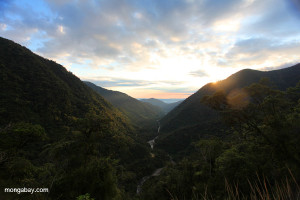Dr. Ian Stirling is a Research Scientist Emeritus with Environment Canada and an Adjunct Professor in the Department of Biological Sciences, University of Alberta, Edmonton. He has done research on polar bears and polar seals (Arctic and Antarctic) for 47 years. Particular areas of research interest include ecology, behaviour, evolution, relationships between polar bears and seals, the biological importance of polynyas, and the conservation and management of polar marine mammals and ecosystems.

Dr. Ian Stirling (Daniel J. Cox/Natural Exposures)
For his work, he has won several awards, including the Canadian Northern Science Award and the National Conservation Award in the Special Achievement Category of the US National Wildlife Federation. He was appointed as an Officer in the Order of Canada by the Governor General, and elected as a Fellow of the Royal Society of Canada, the primary scientific body of that country. He participates in a number of national and international committees on polar bears and marine mammals and has authored or co-authored over 250 scientific and written 5 books on bears and their ecology for the general public.
